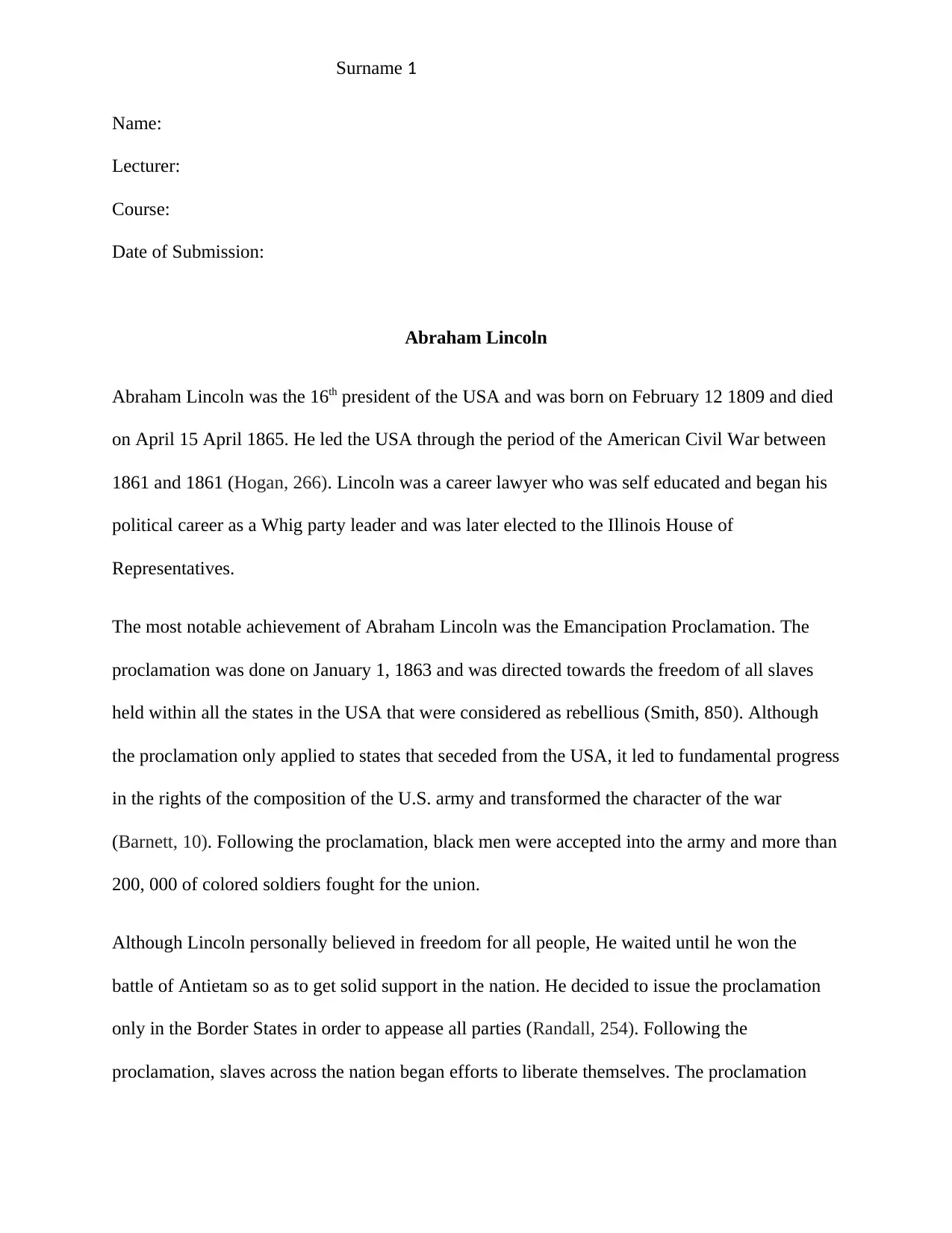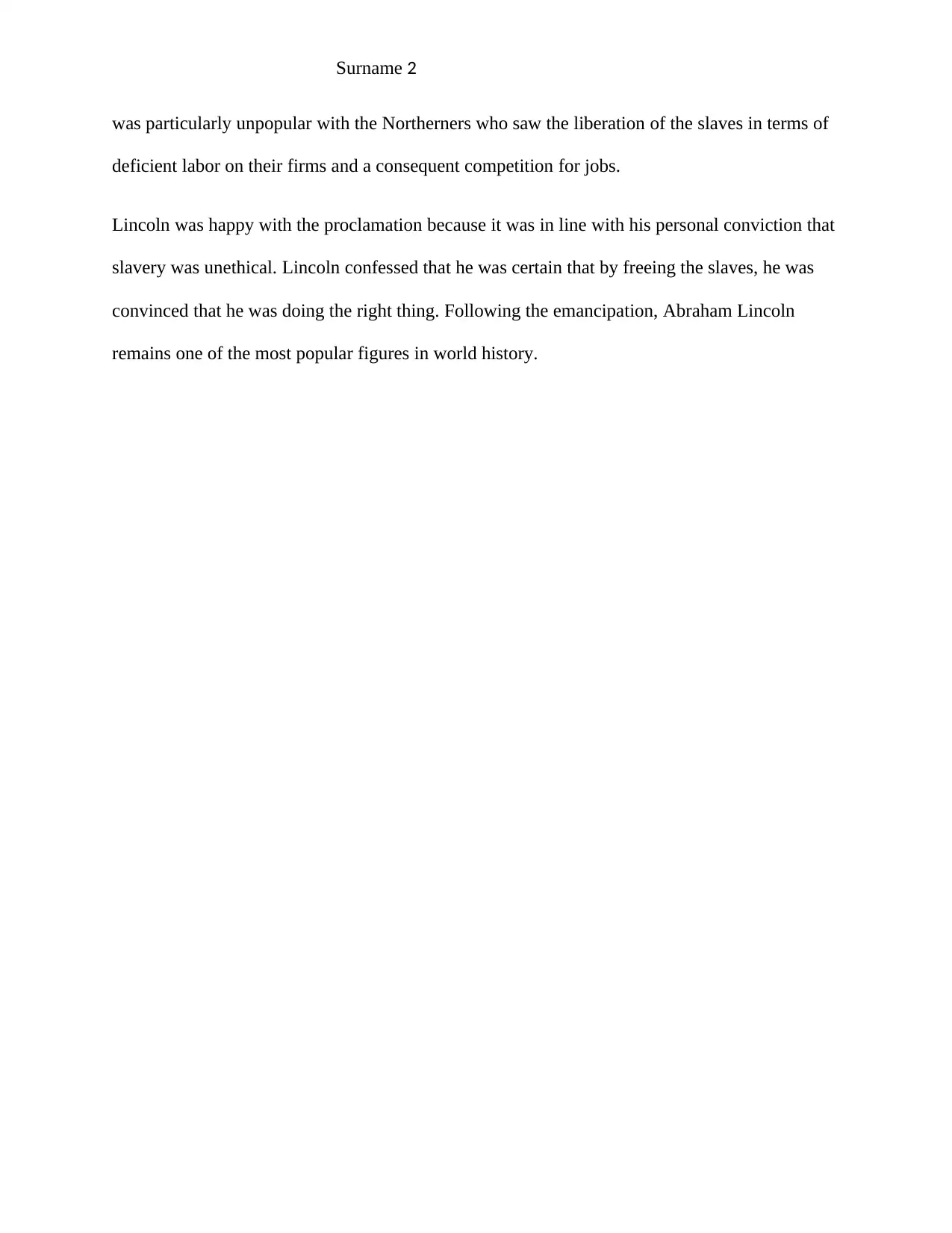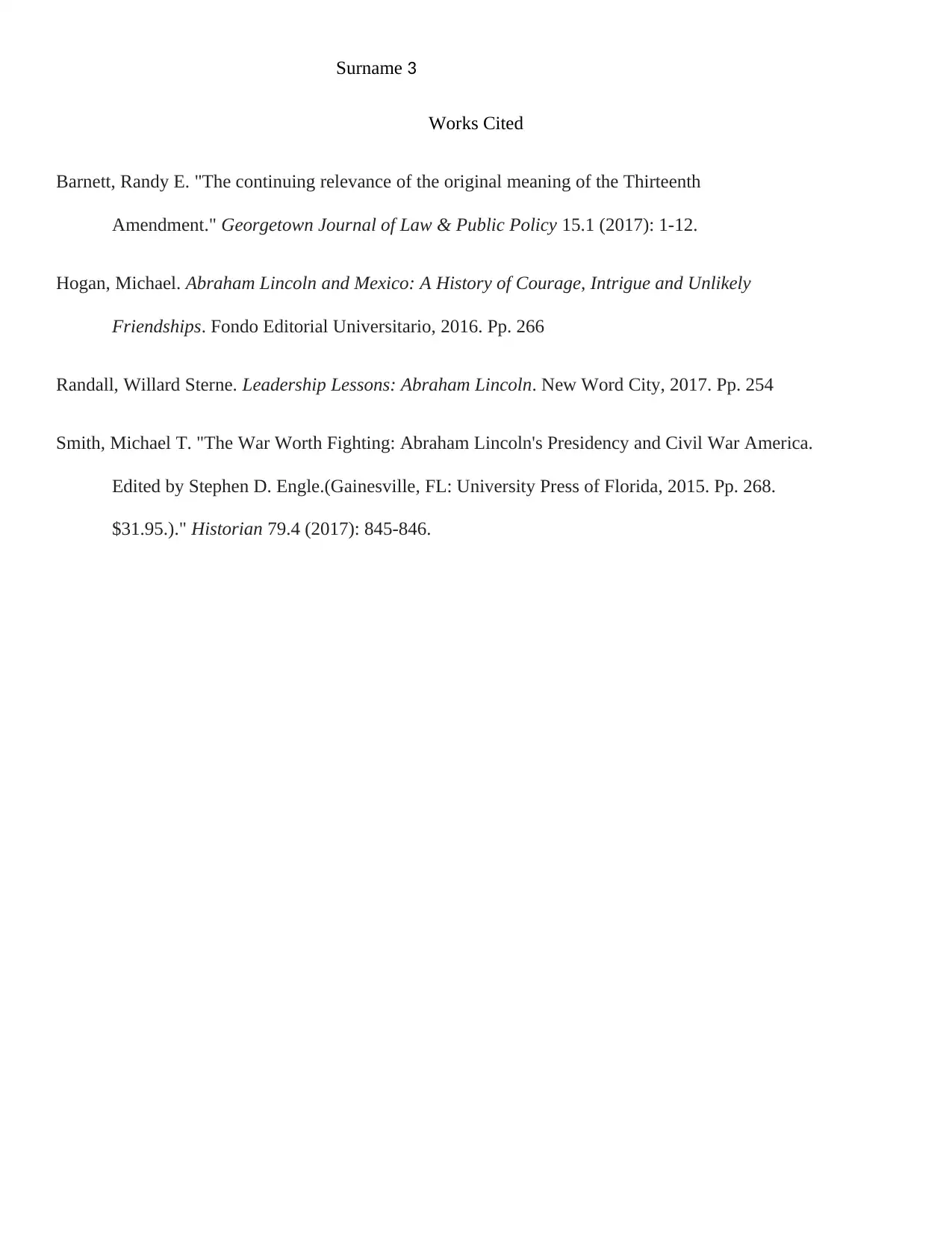A Detailed Report on Abraham Lincoln's Presidency and His Achievements
VerifiedAdded on 2023/06/06
|4
|504
|464
Report
AI Summary
This report provides a detailed analysis of Abraham Lincoln's presidency, focusing on his leadership during the American Civil War and the Emancipation Proclamation. It examines his political career, the context of his decisions, and the impact of the proclamation on the U.S. It highlights the significance of the Emancipation Proclamation, its implications for the war, and its role in the fight against slavery. The report also references scholarly sources to support its claims and offers insights into Lincoln's motivations and the lasting legacy of his presidency. The report also explores the challenges and complexities Lincoln faced, including the political opposition to the proclamation and its impact on the Union's war effort. Overall, the report aims to provide a comprehensive understanding of Lincoln's presidency and his enduring impact on American history.
1 out of 4







![[object Object]](/_next/static/media/star-bottom.7253800d.svg)